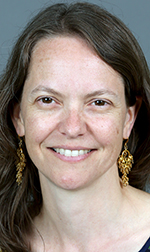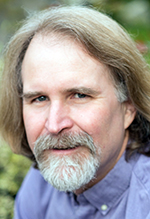Red Cedar Watershed communities have the ability to help tackle the problem of phosphorus pollution and citizens are willing to volunteer and contribute to solve the problem.
Those are some of the key lessons from five years of LAKES REU that Tina Lee, University of Wisconsin-Stout associate professor and program director of the applied social science major, will share during a presentation at the eighth annual Red Cedar River Watershed Conference “Land, Water and People Coming Together.” The conference is from 8:30 a.m. to 4:15 p.m. on Thursday, March 14, at UW-Stout’s Memorial Student Center. Registration fee to the conference is $35 or $20 for students. To register, and for more information go to https://www.uwstout.edu/redcedar.
LAKES REU is a summer research experience for undergraduate students at UW-Stout. The eight-week program studies issues related to cyanobacteria, commonly known as blue-green algae, in the Red Cedar watershed and how the compromised water quality affects quality of life in the region. LAKES REU stands for Linking Applied Knowledge in Environmental Stability Research Experience for Undergraduates.
The watershed includes Lake Menomin, Tainter Lake and the Chetek chain of lakes. It covers about 1,900 square miles in northwest Wisconsin and includes part of 10 counties.
 “What is sometimes missing is all groups coming together to work in concert and a clear understanding of the dynamics of the problem among some citizens,” Lee said. “Confusion about where the problem comes from and what can be done about it can make it seem like an insurmountable problem. Our community has a wealth of resources including leadership, committed organizations, a county board interested in working to solve the problem, county employees who are working with all landowners to help them implement more sustainable practices, a university with a wealth of expertise, etc. More coordination among counties and more ways for people in different parts of the watershed to come together are really needed.”
“What is sometimes missing is all groups coming together to work in concert and a clear understanding of the dynamics of the problem among some citizens,” Lee said. “Confusion about where the problem comes from and what can be done about it can make it seem like an insurmountable problem. Our community has a wealth of resources including leadership, committed organizations, a county board interested in working to solve the problem, county employees who are working with all landowners to help them implement more sustainable practices, a university with a wealth of expertise, etc. More coordination among counties and more ways for people in different parts of the watershed to come together are really needed.”
Other key findings from LAKES REU have been water quality has a negative impact on the economy, depressing home values and creating lost revenues for businesses; farmers are interested in conservation and adopting practices to protect water quality; heavy rainfalls add more phosphorus to the watershed, both through runoff and soil erosion.
The Red Cedar River Conference offers an opportunity for people to come together to hear valuable information on issues facing the watershed, to discuss possible solutions to help keep soil in place while making farming more profitable and to hear success stories from people who have found ways to minimize their contribution to phosphorus loads entering the Red Cedar System.
This year, keynote speakers include David Montgomery, author of “Growing a Revolution: Bringing Our Soil Back to Life,” and other books. He is a professor of Earth and space sciences at the University of Washington. Also speaking will be Whitney Prestby, natural resource educator with UW-Extension and coordinator of the Fox Demo Farms in northeastern Wisconsin. She will be joined by demo farm farmers, Dan Brick of Brickstead Dairy and Dan Diederich of Diederich Farm and Barry Bubolz of the Natural Resources Conservation Service. Gina LaLiberte, Wisconsin Department of Natural Resources, and Amanda Koch, Wisconsin Division of Public Health, will speak on the efforts to assess and manage public health impacts of cyanobacterial algal bloom.
Breakout sessions will focus on soil health and conservation on the farm, building community in the name of conservation and clean water, flooding as a new normal, and more. All sessions will feature time for questions and discussion with the audience.
The conference is hosted by the Tainter Menomin Lake Improvement Association and the 2019 platinum sponsors are UW-Stout and Dunn County. Other sponsors and exhibit booths will be present throughout the day to bring together and build community to support water quality efforts in the region.
“The conference is an amazing opportunity to bring everyone together to learn about what is being done and how everyone can contribute to working for better water quality,” Lee said. “I come away every year inspired by the work everyone is doing.”
UW-Stout is Wisconsin’s Polytechnic University, with a focus on applied learning, collaboration with business and industry, and career outcomes.
###
Photos
Tina Lee
David Montgomery




